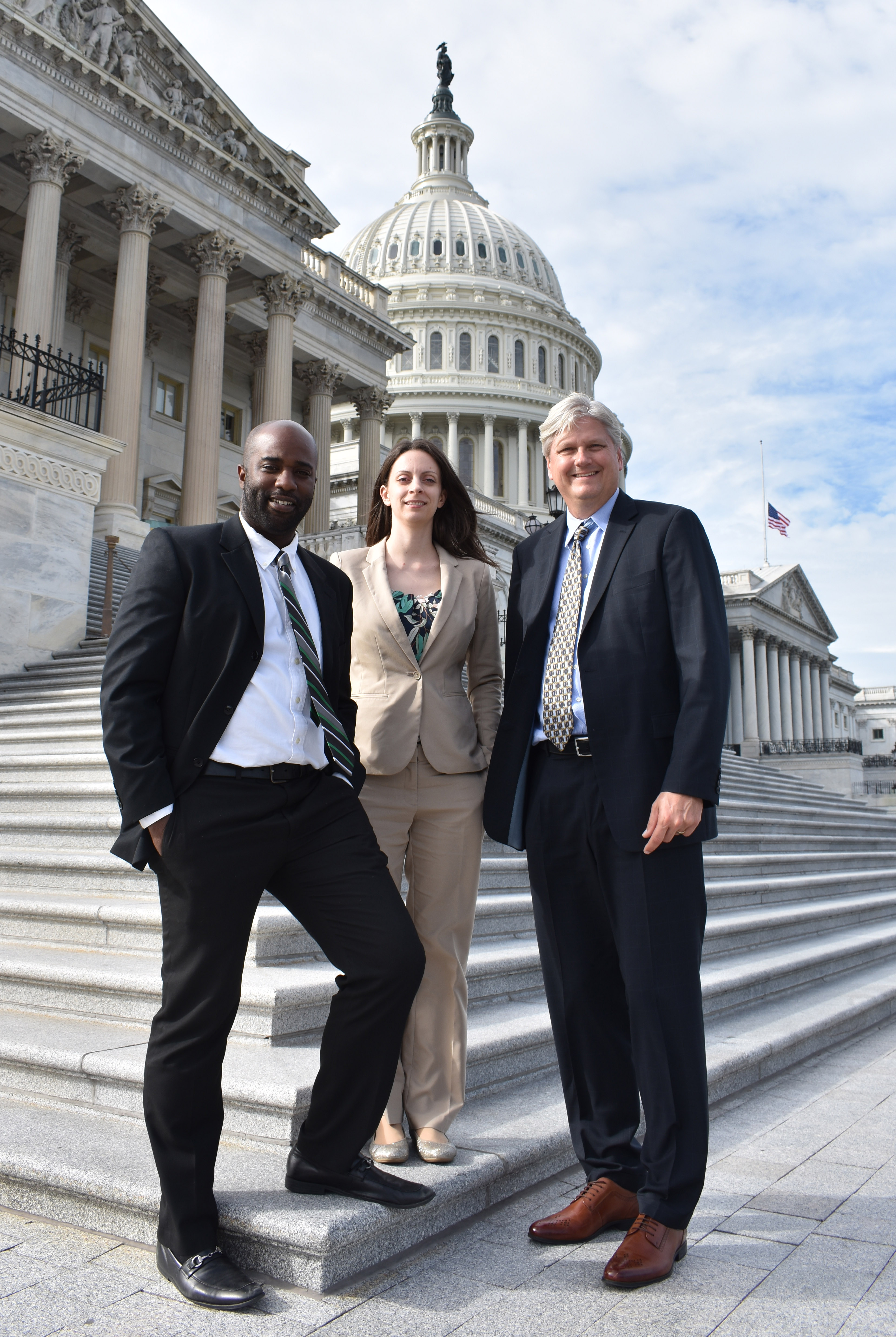
On October 5, several of my colleagues and I traveled to Washington DC to participate in the Forest Resources Association’s Fall Board Meeting and Fly-In. The three-day event included committee and board meetings, networking receptions, guest speakers and—perhaps most importantly—FRA’s “Fly-In.”
For those who have not participated in a fly-in before, it is a gathering of individuals in our nation’s Capitol building to advocate on behalf of a particular industry, interest group or desired outcome. At this fly-in, we were promoting legislative reforms congruent with the FRA’s policy priorities, including such varied topics as agricultural guest workers, independent contractors, perhaps the industry’s favorite topic—truck load weight limits—and the buzzword of the day—tax reform, as well as continued action on the Resilient Federal Forests Act and the Timber Innovation Act.
As a member of FRA’s South Carolina team, I visited with staffers and a few Congressmen from the Palmetto State. At the meetings I attended, there was unanimous interest in learning more about FRA’s current truck weight reform initiative. Not surprisingly, the Republican offices were very excited to talk tax reform while South Carolina’s lone Democratic representative’s office was more moderated, though the staffer we spoke with pointed out that the previous administration had tried—and failed—to lower corporate tax rates already. While Democrats may not give much ground on estate —or “death”—taxes, compromise on corporate tax rates may be more likely in the future, at least judging by South Carolina’s Congressional delegation.

Forest2Market's Javon Carter, Hannah Jefferies and Pete Stewart at the 2017 FRA Fly-In.
(Photo: Vickie Swanton/Forest Resources Association. Used with permission.)
As someone who typically leaves the legislative activity in the capable hands of organizations who specialize “in that sort of thing,” it is hard for me to gauge how impactful my day of meetings will be. But I do know that the sixty-or-so forest industry professionals who participated in over eighty Congressional office meetings organized by the dedicated staff of the Forest Resources Association most assuredly had a greater impact acting together than they would have alone. And I certainly believe that in a world where people get paid to lobby for different interests, including interests not aligned with our own, the best defense is a good offense.
I hope you will join Forest2Market at the Forest Resources Association’s next Fly-In. You can be assured we will be there fulfilling our mission to support our industry partners in the wood products supply chain.




